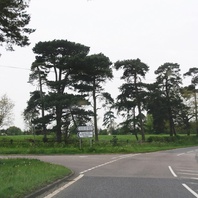
Viking Names
Toynton All Saints
Toynton All Saints, in the Bolingbroke Wapentake of Lincolnshire, is probably ‘the farmstead, village associated with or called after Tota’, from the Old English male personal name Tota with the Old English medial connective particle -ing and Old English element tun ‘farm, settlement’. Alternatively, the first element could be Old English tot ‘a look-out’. Thus, ‘farm/settlement at *Toting (= the look-out place)’. The affix is from the dedication of the church.
Read More

Viking Names
Riby
Riby, in the Yarborough Wapentake of Lincolnshire, was originally an Old English compound Rygetun ‘the farmstead or village where rye grows’. The Old English tun ‘farm, settlement’ was replaced by Old Norse by ‘farm, settlement’.
Read More
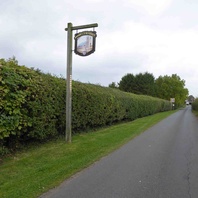
Viking Names
Fenby
Fenby, in the Haverstoe Wapentake of Lincolnshire, is an Anglo-Scandinavian hybrid from Old English fenn ‘a fen, a marsh, marshland’ and Old Norse by ‘a farmstead, a village’. It is most likely to be a partial Scandinavianization of an earlier Old English place-name, perhaps Fenton, with a similar meaning. Fenby is now a joint parish with Ashby, and the name survives in Fenby Farm, which lies in what must have been a fenny area on the lower slope of the Wolds.
Read More
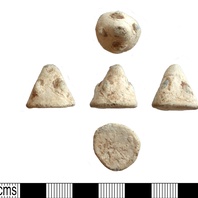
Viking Objects
Lead Gaming Piece (PUBLIC-67DBE3)
This and similar pieces have also been interpreted as weights although the gaming-piece interpretation is more secure. Pieces like this would have been used to play hnefatafl and/or Nine Men’s Morris, both of which are known to have been played in Scandinavia in the Viking Age.
Read More

Viking Names
Kirton
Kirton, in the Bassetlaw Wapentake of Nottinghamshire, is a hybrid name, a compound of Old Norse kirkja ‘a church’ and Old English tun ‘ an enclosure; a farmstead; a village; an estate’.
Read More
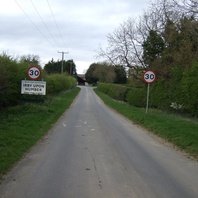
Viking Names
Irby upon Humber
Irby upon Humber, in the Bradley Wapentake of Lincolnshire, comes from Old Norse Íra,the genitive plural form of Íri ‘an Irishman; probably also a Norseman who had lived in Ireland’ and Old Norse by ‘a farmstead, a village’. The reference is probably to an isolated settlement of Norwegian vikings from Ireland, or perhaps Irishmen who came with the vikings to England. However, the exact implications of such a name are not yet fully understood and are the subject of ongoing work by Dr Jayne Carroll of the Institute for Name-Studies, University of Nottingham. Irby upon Humber is to distinguish the place from Irby in the Marsh, also in Lincolnshire.
Read More
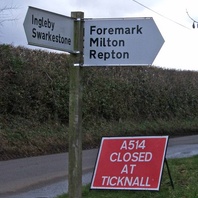
Viking Names
Repton
Repton, in the Repton and Gresley Hundred of Derbyshire, comes from Old English Hrype, an Anglian tribe, and Old English dun ‘a hill’. According to the Anglo-Saxon Chronicle, The Great Heathen Army wintered in Repton in 873-4.
Read More
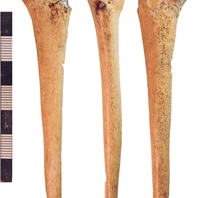
Viking Objects
Pin-Beater (NLM-78D3B5)
This pin-beater was made from a large mammal limb bone, trimmed to a rounded point and smoothed and glossed by wear and handling. Single-ended simple weaving tools are a class linked to the Anglo-Scandinavian use of the vertical loom.
Read More
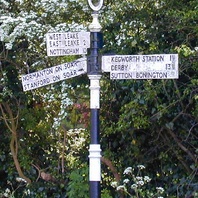
Viking Names
West Leake
West Leake, in Rushcliffe Wapentake of Nottinghamshire, is a simplex name from Old Norse lœkr ‘brook’. East and West Leake are on the banks of a small stream which joins the Soar at Kingston.
Read More
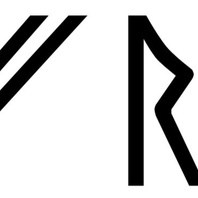
Viking Names
Ingifrid
Ingifríðr appears fairly frequently in Denmark and Sweden. The name is attested twice in England during the Middle Ages in the forms Ingefrit and Ingefrid in documents from Lincolnshire and Yorkshire respectively. It is an Old Norse compound name with its first element Ingi-, which is of doubtful origin but might relate to a Greek word meaning ‘lance’ or ‘staff’ combined with and the second element -fríðr, related to Gothic frījōn ‘to love’, with original meaning ‘loved’, later ‘fair’. In origin it is thus the same name as Ingiríðr.
Read More
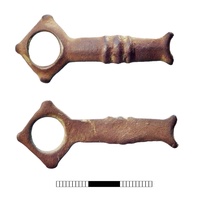
Viking Objects
Harness Fitting (SUR-38C283)
A simple double ended strap-link used as part of a harness. The metal has a reddish tint often associated with Anglo-Scandinavian material.
